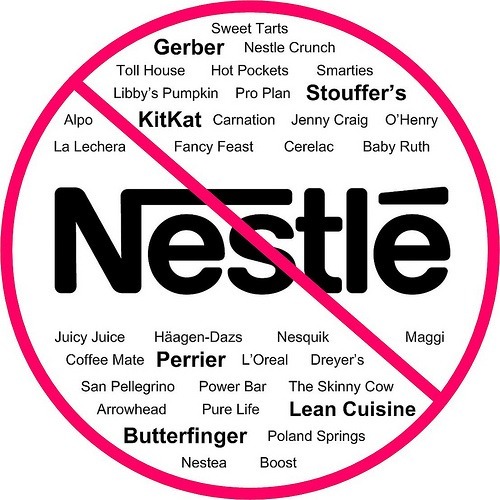
Nestlé is the world’s leading nutrition, health, and wellness company. Dated in 1974, the Third World Action Group and other action groups accused Nestlé of unethical behaviors of promoting and selling infant formula in less economically developed countries, resulting in the malnutrition and deaths of infants.
Breastfeeding provides infants with an unlimited and clean food supply. However, after the promotion of infant formula by Nestlé in third world countries, many mothers switched to this alternative without knowing the consequences. Due to the lack of clean water supply, refrigeration, sanitization, and education, the use of infant formula led to many cases of gastrointestinal infections and diarrhea. In addition, poor women who chose not to breastfeed were not able to afford formula and started to dilute feedings to make formula last longer. Some even believed the bottle itself had nutritional value and filled it water. These practices led to an increased possibility of severe malnutrition.

One of Nestlé’s marketing strategies in third world countries was to send saleswomen dressed up in white hospital uniforms (known as mother-craft nurses) to households and clinics, giving out free samples of infant formula and baby bottles. Information pamphlets describing potential nutritional benefits from the formula, featuring pictures of both breastfeeding and bottle-feeding women. Advertisements were placed through many channels, including television, radio, magazines, posters in local hospitals, and loudspeaker vans. Nearly all of these advertisements depicted healthy white babies being fed by the formula. These mass media advertisements were able to effectively reach mothers in a wide variety of situations and socioeconomic status.
Nestlé argued that introduction of infant formula in the third world countries was to ensure adequate nutrition for babies. Nestlé claims to have never supported bottle feeding over breast feeding, but to have always supported bottle feeding primarily as a supplement to breast feeding. Additionally, Nestlé defends its action by stating that proper instructions on how to prepare the formula were stated clearly on all of the products.
I think this kind of ethical issue is quite complicated.
Global companies are trying to sell products in developing countries but at the same time they have to pay attention to the influence their products will have. As is mentioned in the post, the company sends saleswomen dressed up in white hospital uniforms (known as mother-craft nurses) in order to convince that their product is “safe” and good for their children. Especially in countries where average income is fairly low, free samples works greatly.
However, this could lead them to think only in a way that the company want them to and therefore they can sell more.
Companies, especially those selling food, should be more aware of responsibility of their marketing strategies with regard to their effect on the life of people as it directly goes into their mouths.